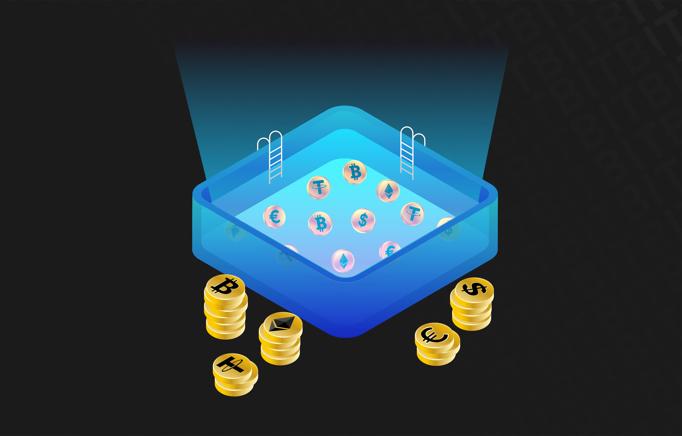What is a liquidity pool?
Tiền điện tử cho chuyên gia
Các bài viết khác
They are crypto assets that are kept to facilitate the trading of trading pairs on decentralised exchanges.
A liquidity pool is a collection of tokens held in a smart contract, which is a self-executing program based on the terms of the buyer and seller's agreement. The pool facilitates bitcoin trading by offering liquidity to users. The ease with which one token can be exchanged for another is referred to as liquidity. Given the selection of cryptocurrencies floating around these days, it's critical to the decentralized finance (DeFi) ecosystem. By utilizing the automated market maker (AMM) mechanism, liquidity pools serve as the backbone of DEX. The AMM is a mechanism in which investors, or "liquidity providers" (LPs), add equal amounts of stablecoins and cryptocurrency coins to the pool—for example, ETH/USDC. People can exchange one stablecoin for another in this way by exchanging the equivalent amount of Ether for USDC (USD Coins). DEX buyers and sellers benefit from LPs since they are given tokens that are easily traded within the same blockchain. Furthermore, LPs are required to begin trading when there is no seller available. To put it another way, if people want to buy specific coins but no one wants to sell them, the LPs put on the seller's hat.
LPs earn interest in the form of trading fees from the trades customers conduct within the pool in exchange for adding tokens to the pool. Liquidity mining is another term for this. A set transaction fee of 0.3 percent is charged on Uniswap's platform. Through trading in liquidity pools, LPs might earn anywhere between 2% and 50% annually over time. To increase their returns, some LPs transfer between multiple liquidity pools. This is referred to as yield farming, where yield refers to the income earned by traders by staking crypto assets.
Since the technology is rather new, there are still challenges to be solved regarding liquidity pools. For one thing, there's the issue of transient loss. The transitory loss of liquidity pool tokens is referred as as impermanent loss. This could occur because of a variety of circumstances, such as price volatility or hacking. In the case of a BTC/USDT liquidity pool, for example, if the price of Bitcoin falls by 20%, LPs will receive less value. This is because each stablecoin deposited into that pool has lost 20% of its value. As a result, the value of these tokens has decreased from their initial value, resulting in a temporary loss. Smart contract concerns, like as hacking or flaws, are another challenge. Because the system is decentralized, there is no legal redress if theft happens. Then there's the possibility of inexperienced developers failing to construct a secure smart contract or failing to lock the liquidity pool, leaving it exposed to attacks.
For a start-up to gain credibility, it's critical to lock down a liquidity pool. It demonstrates that your organization has put in place a procedure to prevent the pool from being drained and turned into a "rug pull" fraud. Therefore, whether conducting a token sale or an Initial Coin Offering (ICO) or IDO, start-ups should work with reputable developers.


